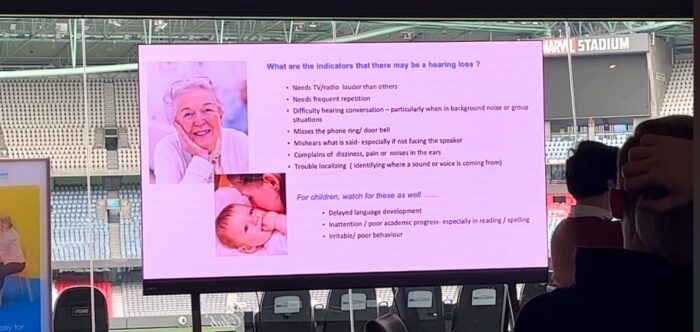There’s no denying the significance of conferences in the world of academia and professional development. They’re not just about presentations and papers; they’re about collaboration, connection, and continuous learning. For budding professionals in many fields, attending these events can be transformative. So, what about attending conferences as a medical student?
For these future physicians, it’s an opportunity to delve deep into their chosen specialties, showcase their budding research, and build connections that could shape their careers. Conferences offer medical students a platform to present work, receive pivotal feedback, and hone their expertise.
Moreover, with often affordable registration fees, they serve as an accessible avenue for aspiring medics to expand their knowledge and networks. Dive in as we explore the myriad benefits and tips for medical students looking to make the most of these events.
The Purpose Conferences for Medical Students
Medical conferences are a beacon for aspiring physicians. These conferences bridge academic learning with real-world insights, fostering growth and networking for attendees. Medical conferences on Healthcare present a unique confluence of knowledge, expertise, and opportunity. Students can immerse themselves in current research, absorbing the latest in medical advancements. This exposure is vital for their academic and professional growth.

Networking is another undeniable benefit of these gatherings. By interacting with established professionals, students can forge connections that might influence their career trajectories. These relationships often lead to mentorships, collaborations, and job opportunities. Presenting research at conferences can be a game-changer for students. It offers a platform to validate their findings, receive feedback, and gain recognition. Such experiences bolster confidence and prepare them for future challenges in medicine.
Types of Conferences Perfect for Medical Students
Medical students stand on the cusp of a vast and ever-evolving field. Attending the right conferences can illuminate their path. Various types cater to diverse interests and specializations.
Clinical Research Conferences
These conferences delve into the intricacies of clinical trials and patient-centered research. Medical students gain insights into evidence-based practices, ensuring they’re abreast of the latest therapeutic approaches. Such events emphasize the real-world applicability of treatments and interventions.
Medical Technology and Innovation Conferences
The realm of medical technology is rapidly advancing, bridging gaps between diagnostics and treatments. At these events, students can witness the latest tech breakthroughs firsthand, gaining an understanding of future medical landscapes. Engaging with innovators offers insights into merging technology with medicine.
Specialty-Specific Conferences
Every medical specialty has its dedicated conference, be it cardiology, neurology, or pediatrics. Students can delve deep into their chosen fields, absorbing specialized knowledge and connecting with leading experts. This targeted approach refines skills and fosters passion.
Global Health Conferences

Choosing the right conference can shape a medical student’s career trajectory, offering them insights and connections vital for their growth. Whether driven by passion or curiosity, the array of options ensures every medical aspirant finds their fit.
Attending Conferences as a Medical Student-How to do it?
Navigating the vast realm of medical conferences as a student can seem overwhelming. However, a systematic approach can simplify the process, making it both enjoyable and educational. Let’s explore a step-by-step guide.
Step-1. Identify Your Interests
Before diving into the sea of conferences, pinpoint your medical interests. Whether it’s a specific specialty, research area, or technological innovation, identifying your passion ensures you choose relevant events. This focus maximizes the benefits you reap.
Step-2. Research Potential Conferences
Once you’re clear on your interests, start researching conferences that align with them. Utilize university resources, seek recommendations from mentors, and search online databases. Comprehensive research ensures you don’t miss valuable opportunities.
Step-3. Budget and Plan Ahead
Conferences, especially those abroad, can be expensive. Plan a budget, considering registration fees, travel, accommodation, and daily expenses. Look for student discounts or grants to help offset costs.
Step-4. Engage in Networking
When attending, prioritize networking. Connect with professionals, fellow students, and researchers, cultivating relationships that can shape your career. Engaging in discussions and panels can open doors to future collaborations.
Step-5. Present or Volunteer
Maximize your conference experience by presenting research or volunteering. Both opportunities provide unique exposure, allowing you to interact closely with experts and gain insights. It’s a proactive approach to deepen your learning.
Step-6. Document and Reflect
Post-conference, make it a habit to document your experiences, insights, and contacts. Reflect on what you’ve learned, how it can shape your future, and any follow-up actions needed. This ensures the experience remains a continuous learning journey.
Conferences are treasure troves of knowledge, experience, and networking for medical students. By approaching them systematically and proactively, one can extract the maximum value, laying a strong foundation for a promising medical career.
Benefits of Attending Conferences for Medical Students
For medical students, conferences are more than just gatherings; they are gateways to growth, knowledge, and networking. Exploring their myriad benefits helps students harness their full potential.
Enhanced Knowledge Base
Conferences showcase cutting-edge research and clinical advancements. Attending these allows students to enhance their knowledge, stay updated, and integrate recent findings into their studies. It’s academic enrichment beyond the classroom walls.
Networking Opportunities
Interactions at conferences aren’t limited to lectures and presentations. They’re vibrant hubs for networking, and connecting students with professionals, researchers, and peers. These relationships can foster mentorships and collaborations in the future.
Professional Exposure
Amidst seasoned professionals and leading researchers, students witness the broader medical community in action. They gain insights into medical practices, career paths, and specialty nuances. This exposure aids informed career decisions.
Presentation Skills
Conferences often offer platforms for students to present their work. This experience refines their presentation skills, bolsters confidence, and allows constructive feedback. It’s invaluable for academic and professional pursuits.
Global Perspective
Attending international conferences broadens your horizons. Students grasp global health challenges, diverse patient demographics, and varied medical practices. This perspective enriches their holistic understanding of medicine.
Tips to Find the Right Conference Beneficial to Medical Students
For medical students, not all conferences are created equal. Selecting the right one can profoundly influence their academic and professional trajectory. Let’s explore tips to make this decision astutely.
- Align with Interests: Choose conferences mirroring your specialties or interests. This ensures sessions are relevant, and you’re genuinely engaged, maximizing knowledge intake.
- Research Organizers: Investigate the organizers and their track record. Prestigious institutions or organizations often guarantee high-quality content and eminent speakers.
- Seek Recommendations: Consult mentors, seniors, or professors for guidance. Their experience can guide you to conferences that offer the most value.
- Consider Location: Factor in travel and accommodation. Sometimes, local conferences can offer just as much value without the added logistics.
- Look for Student Opportunities: Some conferences offer student-specific sessions or discounts. These can enhance your experience without straining your pocket.
- Check Reviews: Look for feedback from past attendees. Their insights can offer a clearer picture of what to expect and potential benefits.
Bottom Lines
Attending conferences as a medical student emerges as a key thread in the intricate tapestry of medical academia. These gatherings aren’t mere events; they’re incubators of knowledge, collaboration, and professional metamorphosis.
By offering exposure to the latest in medical science, fostering invaluable networks, and honing presentation skills, they sculpt the nascent stages of a medical aspirant’s career. Moreover, the affordable fees and diverse range of conferences ensure that every student finds their niche.
The key lies in meticulous selection, active participation, and post-conference reflection. As the medical field evolves, staying updated and connected through these conferences equips students to become adept future physicians, ready to navigate the challenges and advancements of healthcare.







